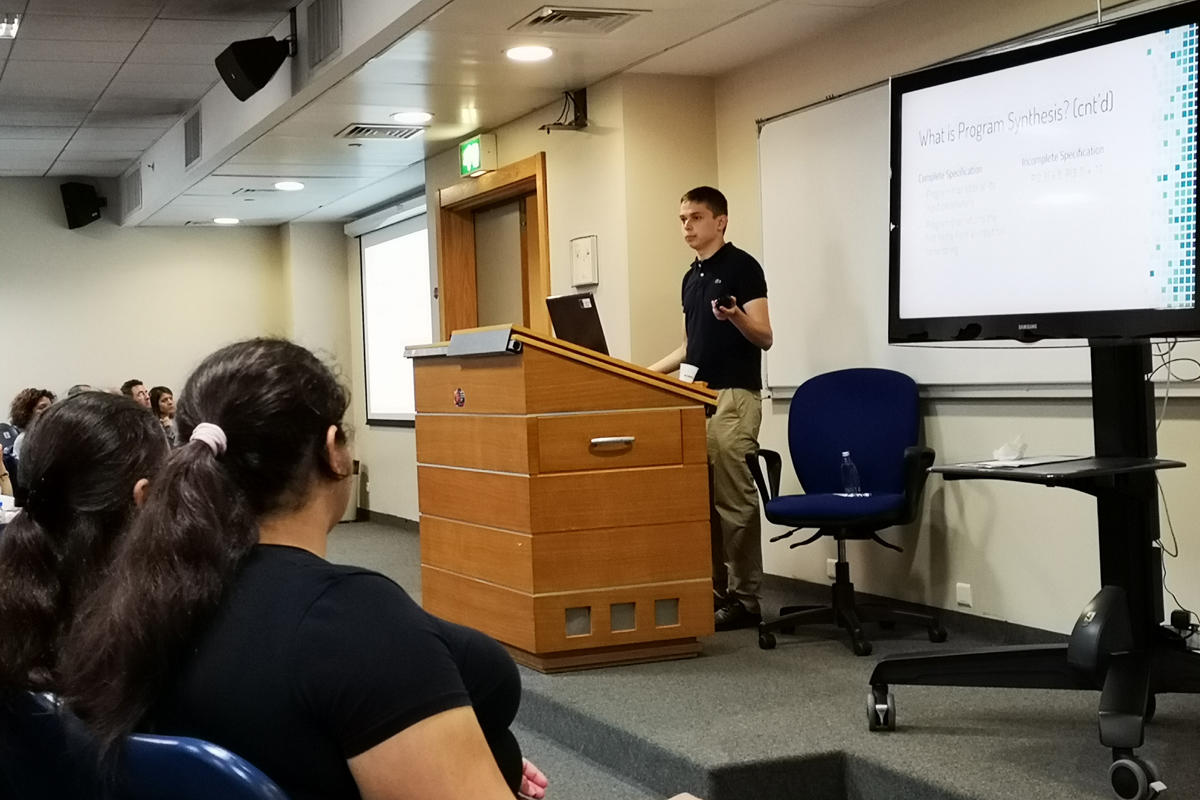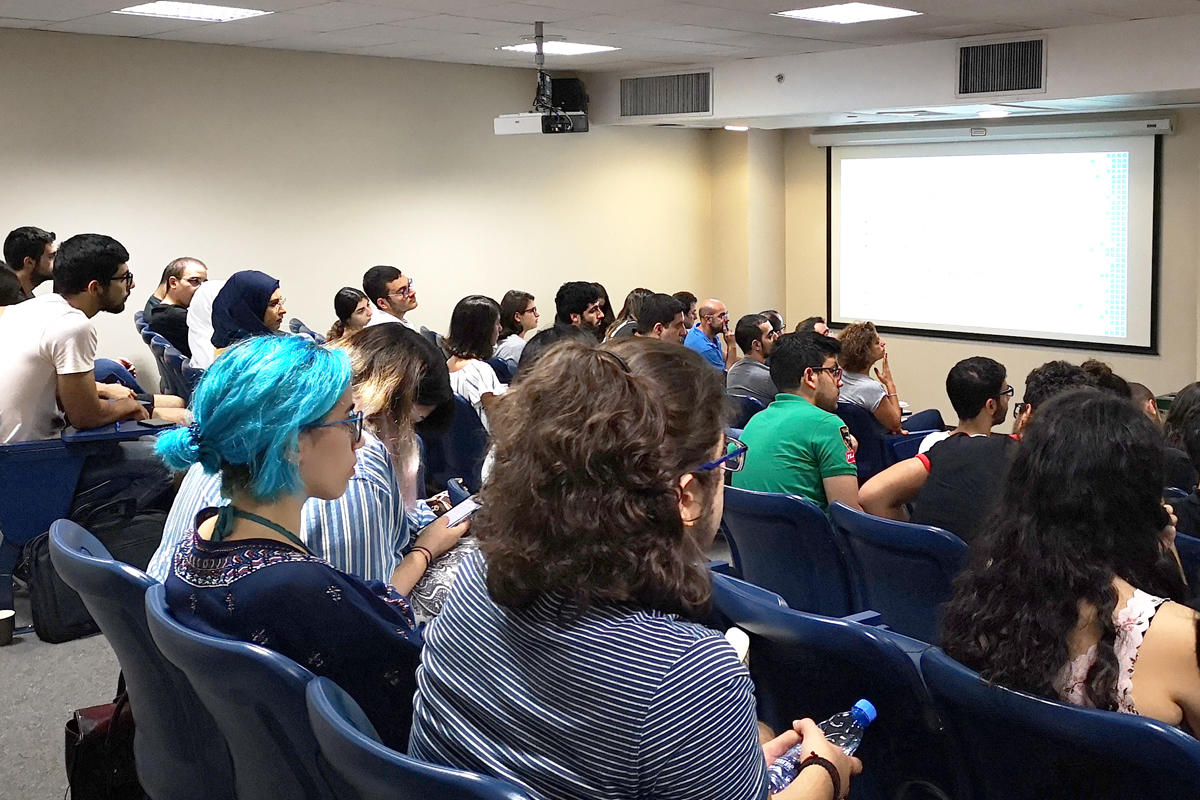Programs Creating Other Programs
SOE hosts event on a future with Artificial Intelligence.
Artificial Intelligence (AI) has transformed the world around us and become a practical reality. Years ago, the idea that a machine could create another machine would have been subject to ridicule. Today, AI challenges our uncertainties by transforming our everyday lives.
Delving deeper into the realm of AI, the School of Engineering (SOE) and the AI Club welcomed SOE alumnus and University of Oxford graduate student Ralph Abboud (BE, ‘17) for an exciting talk about Artificial Intelligence (AI)-based automatic programming on September 19.
Students, faculty, AI Club members, and interested students crowded into the talk, which was held at the SOE’s seat on Byblos campus.
After a short welcome by AI Club representative Charbel Badr, Interim Assistant Dean and Assistant Professor of Computer Engineering Joe Tekli opened the event by welcoming the students and giving them a brief introduction on Abboud, who was eager to share with the audience his latest research and findings from Oxford University.
Abboud explained how program synthesis can address second-order logic problems and the different conventional methods that the system can use. He introduced to the audience a program he has been working on for the past five months. DeepSynth, which is a supervised learning neural-program synthesis system, has the ability to serve as a standalone synthesis tool for smaller programs.
When asked how program synthesis can be an effective tool for engineering or computer science students, Abboud said it can help them concentrate on the more complicated and rigorous aspects of programs. “When you subtract away the simple stuff, at least with what we have now, it lets computer scientists focus more on formalisms and semantics,” he told the crowd.
He added that DeepSynth can help users manage patterns. As a result, it can simplify the process of completing parts of the project that the user would like to create.
“AI does have a place in program synthesis,” said Abboud. “In the best case, we can expect it to replace conventional methods, because it’s definitely faster and more efficient.”
Abboud, a distinguished SOE alumnus and recipient of the highest SOE and LAU awards, recently completed his master’s in computer science at the University of Oxford and has been awarded a full scholarship to join its prestigious PhD program, where he plans to further investigate AI and machine learning techniques and their applications on focused pattern matching and recognition problems.
Integrating AI into curricula is greatly beneficial to students, Dr. Tekli said, especially for those studying engineering and computer science.
“We interact with AI on a daily basis; from our cars to our smartphones – AI is everywhere,” he said. “Machine learning and data mining are important skills that are sought after in this industry, especially when applying for jobs.”
The SOE aims to hold more technical seminars and workshops that all LAU students can freely attend and benefit from, he noted. “These workshops can definitely help prepare students for the jobs of tomorrow.”
When asked about the impact that AI will have on education in the future, Dr. Tekli said, “Will we have AI teachers in the future disseminating material to students? Where is it going to lead? Nobody really knows – we’re going to have to wait and see!”

